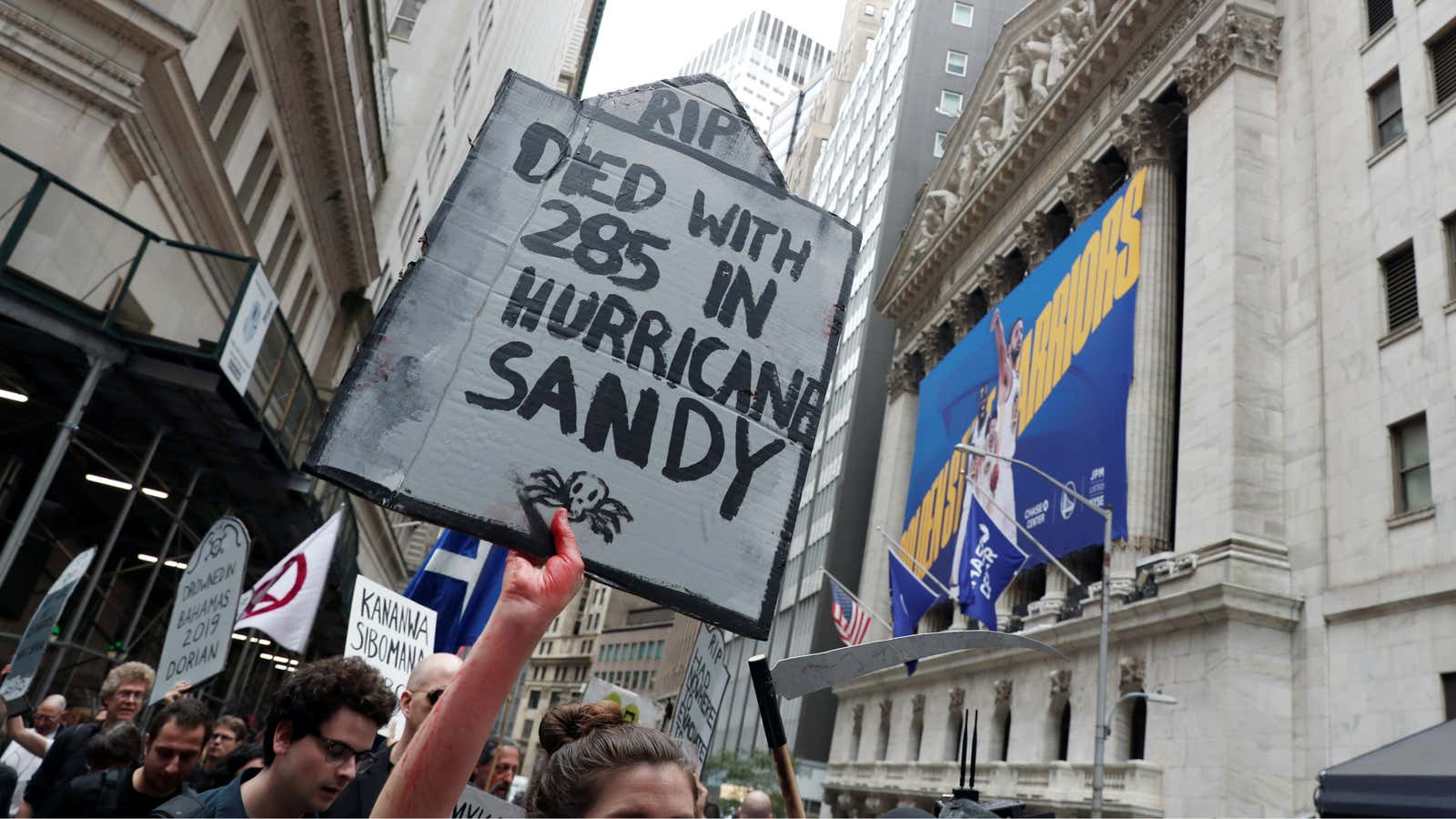BlackRock, the world’s biggest asset manager, is under pressure from activists to block funding for companies that contribute to climate change. Protestors have also taken aim at the New York Stock Exchange, the world’s largest by market capitalization of the firms listed there. Should these financial titans that serve as conduits between investors and companies be the ones to decide who gets funding?
NYSE president Stacey Cunningham says it’s up to investors.
“Investors should have the right to choose,” Cunningham said during a panel discussion today at the World Economic Forum in Davos, Switzerland. “It’s a really slippery slope if we start to decide for them what opportunities they should have access to.”
In some ways, BlackRock and NYSE are in similar positions. They don’t necessarily decide whether money flows into companies that extract oil or coal, or into firms that don’t recruit a diverse suite of executives and board members. But they do enable money to pour into all sorts of companies, and that is an increasingly controversial proposition.
BlackRock doesn’t own the $7.4 trillion in assets (pdf) it manages; the money is allocated and directed by individuals and outside professional investors. The asset manager creates index and exchange-traded funds, as well as actively managed funds, and investors decide which ones to put their money in. NYSE, meanwhile, lists stocks on its exchange, and investors decide which of them to buy or sell.
That said, it’s not like anything goes. NYSE has thresholds for a company to qualify for stock listing (pdf): among other things, a firm must have certain number of shareholders and a minimum market capitalization. Environmental and social criteria aren’t among the requirements. Cunningham says NYSE, owned by Atlanta-based Intercontinental Exchange, has made it easier for investors to make decisions about the environmental, social, and corporate governance credentials of listed companies. “We provide data, we calculate a lot of metrics around ESG issues,” she said.
Last week, BlackRock chief Larry Fink wrote letters to CEOs and clients that focused on sustainability. He said climate change is a crucial for determining companies’ prospects in the long term, and that BlackRock is improving sustainability disclosures for shareholders, while making sustainability a standard offering for investors. Ultimately, though, the choice is the clients’ to make, according to the company’s website: “The investments we make on their behalf will always represent their preferences, timelines and objectives.”
Goldman Sachs CEO David Solomon was asked a similar question during the Davos panel: would the investment bank turn down a client because of these issues? Solomon said the company, in its roles as an investor, advisor, and financier, thinks about “the reputational association of being involved with certain businesses.” But he sidestepped the bigger question about whether Goldman would work with certain energy companies, or with firms that that don’t make diversity a priority.
“You’re looking for a line? There’s not a line,” he said. “There’s a transition going on, where people are thinking differently about how they want to direct capital to try to promote sustainability.”
He added that it will be “a multi-decade transition” in the way investors allocate capital. The activists taking aim at his and other financial firms that facilitate fundraising won’t be willing to wait that long.
